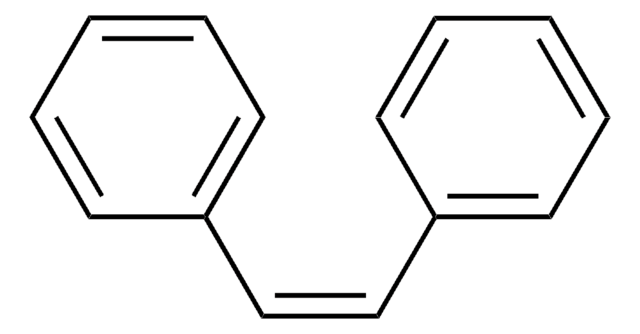223999
2,5-Bis(5-tert-butyl-benzoxazol-2-yl)thiophene
suitable for scintillation, 99%
Synonym(s):
BBOT
About This Item
Recommended Products
Quality Level
Assay
99%
form
powder
color
yellow to green
mp
199-201 °C (lit.)
solubility
toluene: 50 mg/mL
density
1.272 g/cm3 at 20 °C
ε (extinction coefficient)
≥47000 at 372-374 nm in dioxane
suitability
suitable for scintillation
application(s)
diagnostic assay manufacturing
hematology
histology
storage temp.
room temp
SMILES string
CC(C)(C)c1ccc2oc(nc2c1)-c3ccc(s3)-c4nc5cc(ccc5o4)C(C)(C)C
InChI
1S/C26H26N2O2S/c1-25(2,3)15-7-9-19-17(13-15)27-23(29-19)21-11-12-22(31-21)24-28-18-14-16(26(4,5)6)8-10-20(18)30-24/h7-14H,1-6H3
InChI key
AIXZBGVLNVRQSS-UHFFFAOYSA-N
Looking for similar products? Visit Product Comparison Guide
Related Categories
General description
Application
related product
Storage Class Code
11 - Combustible Solids
WGK
WGK 1
Flash Point(F)
Not applicable
Flash Point(C)
Not applicable
Personal Protective Equipment
Choose from one of the most recent versions:
Already Own This Product?
Find documentation for the products that you have recently purchased in the Document Library.
Our team of scientists has experience in all areas of research including Life Science, Material Science, Chemical Synthesis, Chromatography, Analytical and many others.
Contact Technical Service








